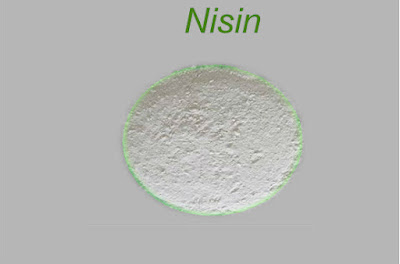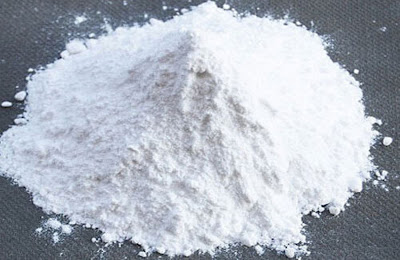Transforming the Landscape of Food Preservation with Nisin
 |
| Nisin |
Food preservation has been a crucial aspect of human
civilization for centuries. From ancient techniques such as drying and salting
to modern methods like refrigeration and canning, humans have always strived to
extend the shelf life of food and prevent spoilage. In recent years, a
remarkable ingredient called nisin has emerged as a game-changer in the field
of food preservation. Nisin, a naturally occurring antimicrobial peptide, has
revolutionized the way we protect and enhance the safety of our food products.
This article explores the fascinating world of nisin and its transformative
impact on the landscape of food preservation.
Nisin is a naturally occurring antimicrobial peptide that
belongs to the class of lantibiotics, which are bacteriocins produced by
various strains of lactic acid bacteria. Discovered in 1928 by Dr. Elmer K.
Konrad, nisin gained recognition for its remarkable ability to inhibit the
growth of a wide range of bacteria, including certain strains of
Staphylococcus, Listeria, and Clostridium. It is primarily produced by the
bacteria Lactococcus lactis, which has been used for centuries in cheese
production.
The Nisin Market was estimated to be worth US$ 489.58
million in 2016 and is anticipated to grow at a CAGR of 4.6% between 2017 and
2025 in terms of revenue.Nisin exerts its antimicrobial activity by disrupting the cell
membranes of target bacteria. It forms pores in the bacterial membrane, causing
leakage of essential intracellular components and ultimately leading to cell
death. This unique mechanism of action sets nisin apart from conventional
antimicrobial agents and makes it highly effective against both Gram-positive
and some Gram-negative bacteria.
Due to its potent antimicrobial properties, nisin has found
extensive applications in the food industry. It offers an attractive
alternative to synthetic preservatives, such as nitrites and sulfites, which
are known to have potential health risks. Nisin can be used in a variety of
food products, including dairy, meat, poultry, seafood, canned goods, and
beverages, to inhibit the growth of spoilage and pathogenic bacteria, thereby
extending the product's shelf life.
In addition to its preservation capabilities, nisin also
enhances the safety and quality of food products. By inhibiting the growth of
pathogenic bacteria like Listeria monocytogenes, nisin reduces the risk of
foodborne illnesses, making it an invaluable tool for ensuring food safety.
Furthermore, nisin has been shown to prevent the formation of biofilms, which
are slimy communities of bacteria that can contaminate food processing
equipment and lead to persistent contamination issues.
One of the major advantages of nisin is its natural origin.
As a naturally occurring peptide, it aligns with the growing consumer demand
for clean-label and minimally processed food products. Nisin is recognized as a
safe ingredient by regulatory agencies worldwide, including the U.S. Food and
Drug Administration (FDA) and the European Food Safety Authority (EFSA). Its
wide acceptance and natural status make it an appealing choice for food
manufacturers and consumers alike.
The use of Nisin in
food preservation continues to evolve, with ongoing research and innovations.
Scientists are exploring ways to enhance the stability and effectiveness of
nisin, improve its delivery systems, and investigate its synergistic effects
with other natural antimicrobial agents. Furthermore, the development of
genetically modified strains of lactic acid bacteria with increased nisin
production capabilities holds promise for the future of food preservation.
Nisin has emerged as a transformative force in the field of
food preservation. Its potent antimicrobial properties, natural origin, and
broad spectrum of activity against various bacteria make it an invaluable tool
for ensuring the safety and quality of food products. With the increasing focus
on clean-label and minimally processed foods, nisin offers a sustainable and
consumer-friendly alternative to synthetic preservatives. As research and
innovation in this field continue, nisin is poised to play an even more
significant role in transforming the landscape of food preservation, benefiting
both the food industry and consumers worldwide.



Comments
Post a Comment